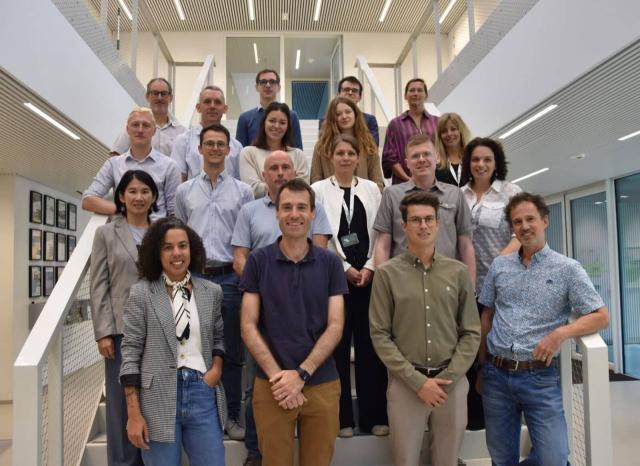On 5 September 2024, the GALILEO project officially launched with a kickoff meeting hosted by VITO at the EnergyVille campus in Genk, Belgium. The event marked the start of a 30-month collaboration focused on unlocking industrial flexibility to support the energy transition. Representatives from all key partners—VITO, KU Leuven, ENTRAS, Elia, Aperam, Nyrstar, Tiense Suiker, Tessenderlo Group, and LCL—gathered for a morning of presentations, networking, and shared vision building. The meeting opened with a welcome coffee and an introductory session that revisited the proposal’s core objectives, including decarbonization, electrification, and system flexibility, followed by practical guidance on subsidy agreements, consortium coordination, and communication protocols.
The heart of the session involved a deep dive into the project’s work streams (WP1 to WP6), with each work package leader outlining methodologies, planned outputs, and key timelines. Particular attention was given to the real-world industrial reference cases, which are central to GALILEO’s value proposition. Participants explored use cases involving steam turbines, e-boilers, ORCs, and virtual battery systems across diverse sectors, from metallurgy to food processing and data centers. These demos are designed not only to validate technical feasibility but also to inform future policy and market design by showing how industrial flexibility can help mitigate grid congestion and reduce overall system costs.
The meeting concluded with a discussion of next steps and a networking lunch. Momentum is now building as partners move into detailed planning and early implementation. Quarterly workshops with the Industrial Advisory Board are scheduled to begin later this fall, alongside the launch of the project website and communication tools. The kickoff underscored the strong commitment of all parties to making GALILEO a driver for sustainable innovation in Belgium’s industrial and energy sectors.

